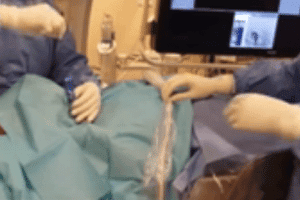
Concerns for Inferior Vena Cava Filters Retrievals. A retrievable inferior vena cava filter (IVC) is a small, metal device made to stop a blood clot from traveling to the lungs. The device resembles a metal cage and is surgically inserted into a patient’s inferior vena cava, which is the vein that takes blood back to […]

Concerns for Inferior Vena Cava Filters Retrievals. A retrievable inferior vena cava filter (IVC) is a small, metal device made to stop a blood clot from traveling to the lungs. The device resembles a metal cage and is surgically inserted into a patient’s inferior vena cava, which is the vein that takes blood back to the heart and lungs, according to Drugwatch.
The most recent reports from PubMed concerning failed IVC retrievals are: 9 failures due to the inability to snare the hook, unusual procedural pain, while median duration of retrieval was 32 days compared to 53 days for failures.
The IVC has been used since the 1960s and by 2012, approximately 259,000 filters have been inserted as a temporary measure to impede blood clots. The IVC is used as an alternative for those patients for whom anticoagulants or blood thinners are not an option, says the Mayo Clinic.
However, there are complications associated with IVC filters including filter migration, clotting, breakage of parts of the filter, which can lead to severe pain, bleeding and possible life-threatening complications. There is a risk when broken-off parts of an IVC filter can enter the inferior vena cava, the aorta, or the duodenum (the part of the small intestine closest to the stomach), PubMed reports.
In 2010, the U.S. Food and Drug Administration (FDA) announced a safety alert regarding retrievable IVC filters. The FDA received 921 reports of adverse events from 2005-2010. Most of the adverse events, 35 percent involved device migration. Migration occurs when filters move away from their intended location. The FDA listed this as the second most frequently reported complication. Retrievable IVC filters are only intended for short-term placement. The FDA recommends retrievable devices be removed between the 29th and 54th day after implantation, says Drugwatch.
The personal injury attorneys at Parker Waichman LLP offer free, no-obligation case evaluations. For more information, fill out our online contact form or call 1-800-YOURLAWYER (1-800-968-7529).


